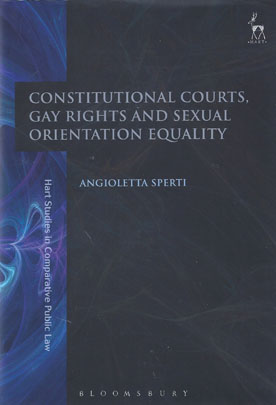
In the last fifteen years constitutional issues regarding the rights of homosexuals and same-sex couples have emerged on a global scale, and the political and social debate about the recognition of LGBT rights has become so widespread that it should be regarded as the civil rights frontier of our time.
This book considers a wide-range of decisions by constitutional and international courts relating to LGBT rights, including the path from decriminalization of sexual acts to recognition of same-sex marriage, and the topical subject of adoption for homosexual couples.
It explores analogies and differences between judicial arguments and ratios, paying particular attention to the development of human dignity, privacy, equality and non-discrimination in judicial thinking. It argues that courts are major exporters of models and principles on the recognition of homosexual rights, and that judicial cross-fertilization helps courts increase the acceptability of "new rights" in public opinions and politics.
Courts discuss changes in the social perception of marriage and family at national and international levels, and at the same time confirm and reinforce those changes. Furthermore, by promoting the achievements of foreign gay movements in their own jurisdictions, courts play an essential role in breaking the political stalemate.
The book will be of interest to those working on constitutional, public and human rights law, as well as judicial studies.